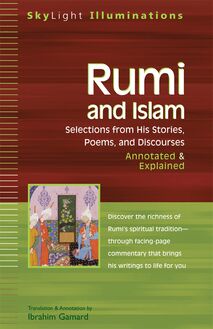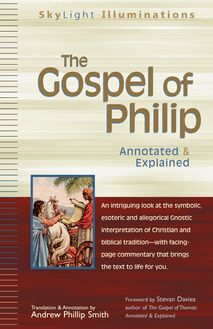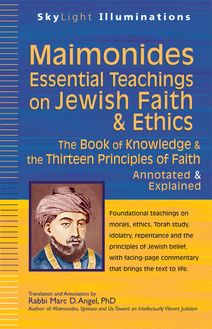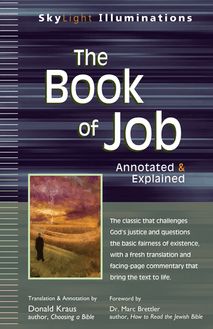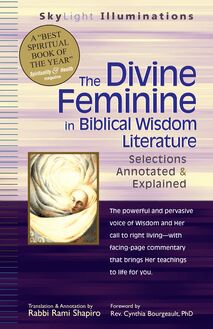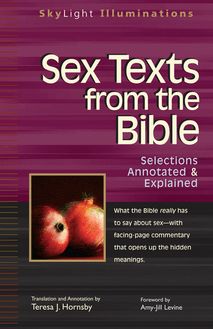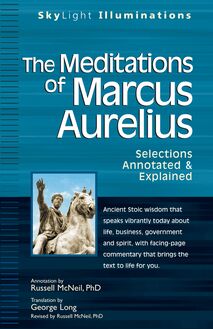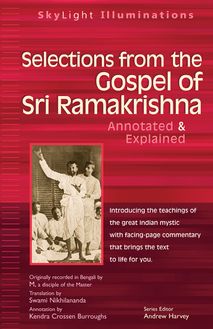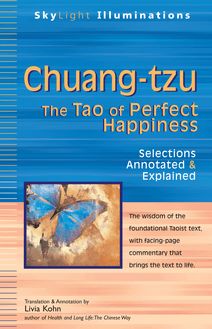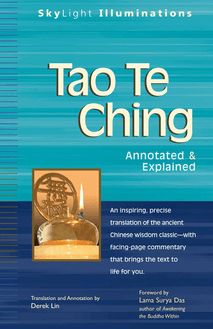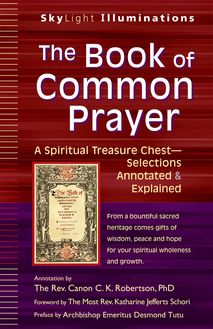-
 Univers
Univers
-
 Ebooks
Ebooks
-
 Livres audio
Livres audio
-
 Presse
Presse
-
 Podcasts
Podcasts
-
 BD
BD
-
 Documents
Documents
-
- Cours
- Révisions
- Ressources pédagogiques
- Sciences de l’éducation
- Manuels scolaires
- Langues
- Travaux de classe
- Annales de BEP
- Etudes supérieures
- Maternelle et primaire
- Fiches de lecture
- Orientation scolaire
- Méthodologie
- Corrigés de devoir
- Annales d’examens et concours
- Annales du bac
- Annales du brevet
- Rapports de stage
La lecture à portée de main
Vous pourrez modifier la taille du texte de cet ouvrage
Découvre YouScribe en t'inscrivant gratuitement
Je m'inscrisDécouvre YouScribe en t'inscrivant gratuitement
Je m'inscrisEn savoir plus
Vous pourrez modifier la taille du texte de cet ouvrage
En savoir plus

Description
The spiritual teachings of many faith traditions can help you step beyond the limits of any one tradition to the reality that can't be named.
The fastest growing spiritual movement in the United States today is that of the religiously unaffiliated. These spiritual seekers make up 20 percent of the adult American population; they are the spiritual equivalent of political independents. Refusing to limit themselves to one religion or another, these seekers without borders are open to wisdom wherever it can be found.
This is a "bible" for this vast and growing social movement. It weaves sacred texts and teachings from the world’s major religions—Christianity, Judaism, Islam, Hinduism, Buddhism and more—into a coherent exploration of the five core questions at the heart of every religion’s search:
• Who am I? • Where did I come from? • Where am I going? • How shall I live? • Why?
It couples these sacred teachings with modern commentary designed to help readers use these texts in their daily lives. It also provides the basics of spiritual mentor Eknath Easwaran’s Passage Meditation to help you internalize the texts that articulate your deepest insights and values.
Foreword ix
Preface xiii
Spiritually Independent, Not Spiritually Disinterested xiii
Perennial Philosophy: It's Fourfold xiv
Passage Meditation: Meaningful Memorization xiv
The Five Questions: The Heart of the Spiritual Quest xv
Personal Note xvi
Acknowledgments xvii
What Is Perennial Wisdom? 1
Who Am I? 10
Where Did I Come From? 54
Where Am I Going? 118
How Shall I Live? 176
Why? 258
Sages Cited, Annotated 283
Primary Sources, Annotated 296
Notes 309
Bibliography and Suggestions for Further Reading 310
Sujets
Informations
| Publié par | Turner Publishing Company |
| Date de parution | 01 septembre 2013 |
| Nombre de lectures | 0 |
| EAN13 | 9781594735417 |
| Langue | English |
Informations légales : prix de location à la page 0,1000€. Cette information est donnée uniquement à titre indicatif conformément à la législation en vigueur.
Extrait
Thank You For Purchasing This Skylight Paths eBook!
Sign up for our e-newsletter to receive special offers and information on the latest new books and other great e-books from SkyLight Paths.
Sign Up Here
or visit us online to sign up at www.skylightpaths.com .
Looking for an inspirational speaker for an upcoming event, conference or retreat?
SkyLight Paths authors are available to speak and teach on a variety of topics that educate and inspire. For more information about our authors who are available to speak to your group, visit www.skylightpaths.com/page/category/SLP-SB .
To book an event, contact the SkyLight Paths Speakers Bureau at publicity@skylightpaths.com or call us at (802) 457-4000.
This book is dedicated to Peter Santos and Michael Gelinas, my high school Asian Civilization teachers, who were the first to introduce me to the world s religions; to Huston Smith and Teresina Havens, my first gurus, who taught me how to uncover the Perennial Wisdom woven into every religious tradition; to my rebbe, Rabbi Zalman Schachter-Shalomi, who taught me to be a Jewish practitioner of universal truth ; and to Eknath Easwaran, whose practice of Passage Meditation continues to guide me day by day.
Contents
Foreword
Preface
Spiritually Independent, Not Spiritually Disinterested
Perennial Philosophy: It s Fourfold
Passage Meditation: Meaningful Memorization
The Five Questions: The Heart of the Spiritual Quest
Personal Note
Acknowledgments
1 | What Is Perennial Wisdom?
2 | Who Am I?
3 | Where Did I Come From?
4 | Where Am I Going?
5 | How Shall I Live?
6 | Why?
Sages Cited, Annotated
Primary Sources, Annotated
Notes
Bibliography and Suggestions for Further Reading
About the Authors
Copyright
Also Available
About SkyLight Paths
Sign Up for E-mail Updates
Send Us Your Feedback
Foreword
You can call it the collective unconscious; you can call it globalization; you can call it the Spirit of God; but why is it that so many of us are saying very similar things today when we are all from different traditions, countries, ethnicities, educations, and religions? This is really quite amazing and to my knowledge has no precedent in human history.
What a joy it is to write a few words in support of, and strong encouragement for you to read, this excellent book! Who would have thought that a Franciscan priest in New Mexico, trained in classic Catholic theology, would even be invited to do such a thing? Or even want to do it? Yet I read Rabbi Shapiro s words and all I keep saying is Yes, Of course, Makes total sense, and This fits my own experience and education!
The things we used to argue about or use as reasons to dismiss one another now so often seem boring, limited, historically bound, and frankly prejudicial. Why should we be trapped inside of other peoples history, other peoples categories, or past arguments that are not really ours?
We are rediscovering the philosophia perennis , the early ninteenth-century phrase that pointed to an idea of a shared universal truth, and at a rather quick pace-God seems urgent at this point in our tragic history. Some of us call it the wisdom tradition which keeps showing itself in all of the world religions throughout history. This wisdom cannot be dismissed as mere syncretism-a word we Catholics loved to use for anyone who was trying to broaden our vocabulary and experience-or as lightweight thinking, sophisticated skepticism, or just wrong! That is too easy.
Too many of God s holy people keep saying the same thing-although admittedly from the more mature levels of consciousness-that we cannot continue to dismiss all holy people as fuzzy thinkers. And, of course, they each say it in their own in-house language, culture, and century, which probably did magnify the problem.
Some have called these folks mystics, prophets, and saints, although even that word mystic got mystified in common usage, because we did not know how to think contemplatively, non-dually, or how to teach spiritual things spiritually, to quote Paul from his sermon on wisdom (1 Corinthians 2:1-16). I am convinced Paul learned the core of this from his own Jewish tradition and was trying to teach it to what would become another religion called Christianity-which most of us would now agree, neither Jesus nor Paul ever foresaw or intended! (Don t hate me, Christians!)
Most were not ready for Paul s non-dual way of thinking, and most Christians and Jews have interpreted his thinking in an entirely dualistic way, and even in antagonism to his own beloved religion of Israel. The mystery of the crucified that Paul often speaks of is not a statement about Jesus being victimized, or a pro-Christian rallying cry, but a metaphor for the universal pattern of disorder inside of order, tragedy inside of holiness, surprise inside of consistency, the last being first, death inside of life, and the fly in every ointment. This is a universal pattern and truth, as old as the Hindu Scriptures, Confucian aphorisms, and the books of Exodus and Job.
But we Christians used Paul in a contentious, dualistic, and either-or way. We used his strong metaphor to blame, hate and separate, because that is what the unconverted self prefers. You can almost define the ego as that part of you which loves to take sides. The longer and more vigorously it justifies its side, the more it feels like this is surely truth, and soon my truth easily and quickly morphs into the truth and even the only truth. That is the devious darkness of the ego. We end up not with orthodoxy but with egocentricity.
This is invariably what happens when you have not been exposed to perennial philosophy, when you are not taught how to distill the big patterns out of the momentary arguments where everyone takes sides, when you cannot distinguish between the small, separate self and the self created by God and one with God, from all eternity. Rami Shapiro will guide you well here. Read on!
Fr. Richard Rohr, OFM
Center for Action and Contemplation
Albuquerque, New Mexico
Preface
Perennial Wisdom for the Spiritually Independent is shaped by four factors: the swift increase in the number of spiritually independent Americans who, when asked in surveys to identify their religious affiliation, check the box labeled None ; the perennial wisdom or perennial philosophy taught by the world s great mystics; Eknath Easwaran s practice of Passage Meditation, which I share here with the permission and blessing of his Blue Mountain Meditation Center; and the Five Questions at the heart of almost every spiritual quest for meaning and meaningful living.
Spiritually Independent, Not Spiritually Disinterested
A recent Pew Research Center survey on American religious life records that one-fifth of the US public-and a third of adults under thirty-are religiously unaffiliated today, the highest percentages ever in Pew Research Center polling. 1 Given that the label offered to the spiritually independent survey taker was None, it isn t surprising that these religiously unaffiliated individuals are often called Nones . The label is decidedly negative, however, and implies a lack of spiritual or religious interest, when in fact just the opposite is true. Most of these so-called Nones are not dismissive of God or spirituality but simply find religious labels and affiliation too narrow and constraining. This is why I choose to call this growing segment of the population by the far more positive and accurate term spiritually independent . People who are spiritually independent share the same existential questions as almost every other human being but do not confine their search for answers to any one religion. The answers they do find are often those taught by the great mystics of the world s religions-answers that emerge over and again throughout human history and across human cultures and that have come to be called the perennial philosophy or perennial wisdom.
Perennial Philosophy: It s Fourfold
The term perennial philosophy was coined by Agostino Steuco (1497-1548) and refers to a fourfold realization: (1) there is only one Reality (call it, among other names, God, Mother, Tao, Allah, Dharmakaya, Brahman, or Great Spirit) that is the source and substance of all creation; (2) that while each of us is a manifestation of this Reality, most of us identify with something much smaller, that is, our culturally conditioned individual ego; (3) that this identification with the smaller self gives rise to needless anxiety, unnecessary suffering, and cross-cultural competition and violence; and (4) that peace, compassion, and justice naturally replace anxiety, needless suffering, competition, and violence when we realize our true nature as a manifestation of this singular Reality. The great sages and mystics of every civilization throughout human history have taught these truths in the language of their time and culture. It is the universality and timelessness of this wisdom that makes it the perfect focus for the spiritually independent seeker.
Passage Meditation: Meaningful Memorization
In his work with American students in search of a spiritual practice suited to the American psyche, Shakespeare scholar and spiritual mentor Eknath Easwaran (1910-1999) drew on his experiences in the college classroom. He found that asking students to memorize passages from Shakespeare aided their understanding of the text and allowed them to more deeply contemplate its meaning for their lives:
The secret of meditation is simple: you become what you meditate on. When you use an inspirational passage every day in meditation, you are driving the words deep into your consciousness. Eventually they become an integral part of your personality, which means they will find cons
-
 Univers
Univers
-
 Ebooks
Ebooks
-
 Livres audio
Livres audio
-
 Presse
Presse
-
 Podcasts
Podcasts
-
 BD
BD
-
 Documents
Documents
-
Jeunesse
-
Littérature
-
Ressources professionnelles
-
Santé et bien-être
-
Savoirs
-
Education
-
Loisirs et hobbies
-
Art, musique et cinéma
-
Actualité et débat de société
-
Jeunesse
-
Littérature
-
Ressources professionnelles
-
Santé et bien-être
-
Savoirs
-
Education
-
Loisirs et hobbies
-
Art, musique et cinéma
-
Actualité et débat de société
-
Actualités
-
Lifestyle
-
Presse jeunesse
-
Presse professionnelle
-
Pratique
-
Presse sportive
-
Presse internationale
-
Culture & Médias
-
Action et Aventures
-
Science-fiction et Fantasy
-
Société
-
Jeunesse
-
Littérature
-
Ressources professionnelles
-
Santé et bien-être
-
Savoirs
-
Education
-
Loisirs et hobbies
-
Art, musique et cinéma
-
Actualité et débat de société
- Cours
- Révisions
- Ressources pédagogiques
- Sciences de l’éducation
- Manuels scolaires
- Langues
- Travaux de classe
- Annales de BEP
- Etudes supérieures
- Maternelle et primaire
- Fiches de lecture
- Orientation scolaire
- Méthodologie
- Corrigés de devoir
- Annales d’examens et concours
- Annales du bac
- Annales du brevet
- Rapports de stage
